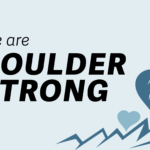The holidays are upon us and with increased contact with friends and family comes one of the dreaded questions of most college students, “So what are you going to do with that major?” This question isn’t just reserved for friends and family. Many young adults find themselves wondering about how or if their major will translate into a career, and if it does will that career pay enough? Or be rewarding?
Payscale, a salary-tracking website, recently completed a survey that asked respondents if they believe their job makes the world a better place and then connected these jobs to majors. Their searchable list ranks 319 majors based on the number of graduates who said that their job makes the world a better place. In addition to the rankings, the list includes the jobs’ mid-career pay. Overall, Payscale found that jobs that focus on helping people directly are generally ranked as the most meaningful.
While Payscale’s list provides a useful starting point for exploring how majors connect to meaningful careers and what the average salary might be, it does not provide information on how one major can lead to many different types of careers. The website What Can I Do With This Major? is a wonderful free tool that students and parents can use to explore the variety of careers students in most majors might pursue. The website breaks down each major into different career areas and then includes typical employers in that area. Finally, it provides information or strategies that students can consider now to help prepare for a career in that field.
Let’s look at a sample example for a student who majors in Sociology. The student could explore the following career areas:
- Human Services
- Criminal Justice
- Law
- Education
- Government
- Social Science Research
- Business,
- Environmental Sociology
Within the career area of Human Services, students may find themselves in Direct Care (Counseling, Case Management, Crisis Work, etc…) or Administration (advocacy, programming, community relations, grant writing, etc…). Typical employers might include:
- Federal, state, and local government
- Advocacy groups
- Religiously-affiliated organizations
- Non-profit/social service agencies
- Private foundations
- Adoption and child care agencies
- Nursing homes and retirement communities
- Senior citizens’ centers
- Residential treatment facilities
- Hospitals and wellness centers
- And more…
Finally, the site encourages students who want to work in this field to consider the following strategies:
- Concentrate course work or earn a minor in an area of interest such as youth, gerontology, or poverty.
- Develop helping and communication skills through volunteer positions.
- Obtain essential practical experience through an internship, part-time or summer job with a non-profit or social service organization.
- Serve as a Peer Mentor, Resident Assistant, or other student leader.
- Gain experience with diverse populations.
- Learn a second language in order to interact with non-English speakers and increase marketability.
- Many entry level positions require some related experience. Volunteering, part-time jobs, and internships can typically fulfill this requirement.
- Obtain a graduate degree in a social service discipline such as social work, counseling, or psychology to increase employment opportunities.
- Most states require licensure or certification for positions involving the direct provision of therapeutic services to clients.
Spend some time on What Can I Do With This Major? this holiday season so you can surprise your family and friends the next time they ask you, “So what are you going to do with that?” And if you would like more support around exploring possible careers or internships, schedule an appointment with a career counselor or career coach when you return from break!
Liz Morningstar, PhD, Collegiate Coaching Services, Lead Academic Coach











